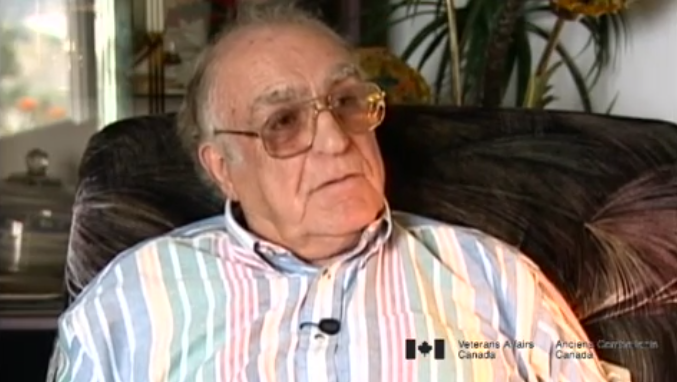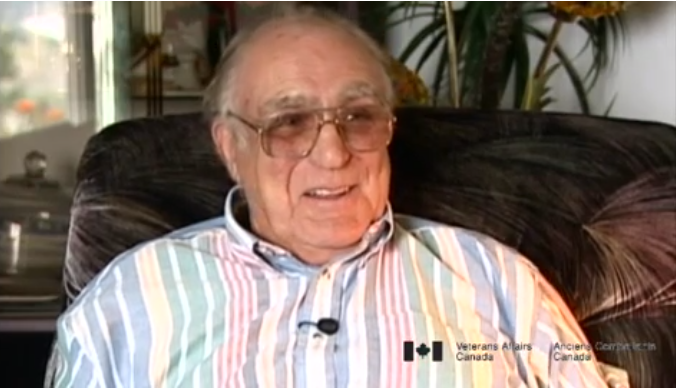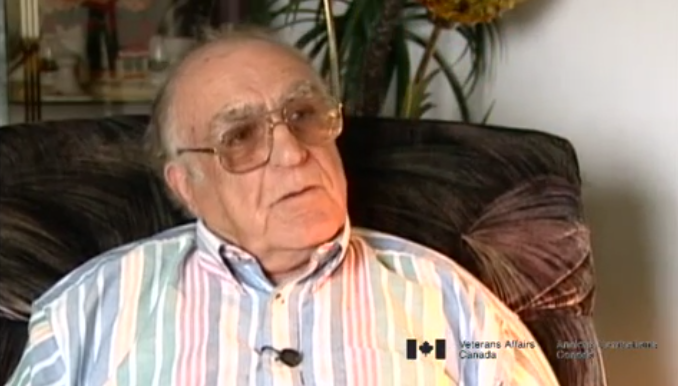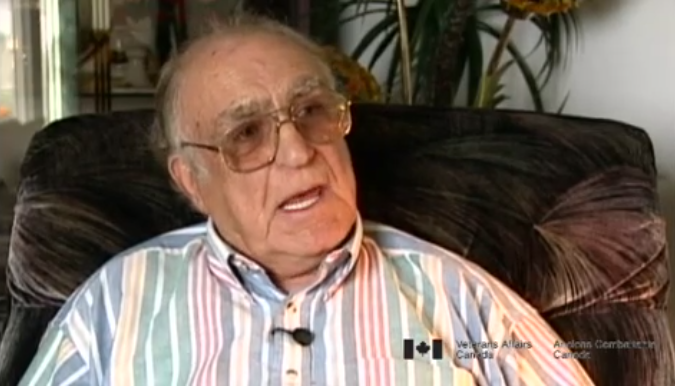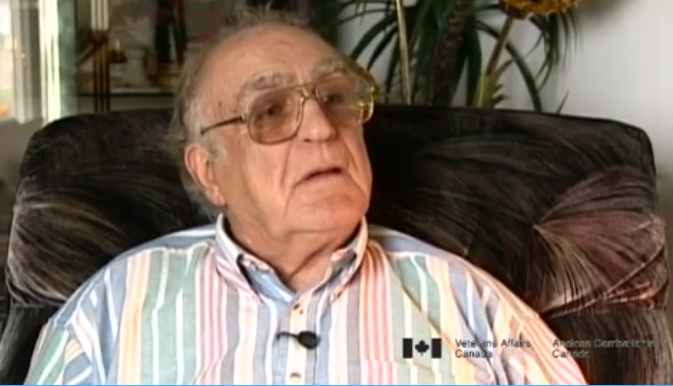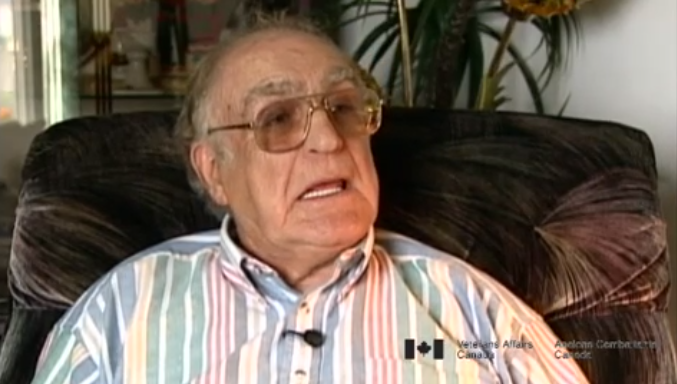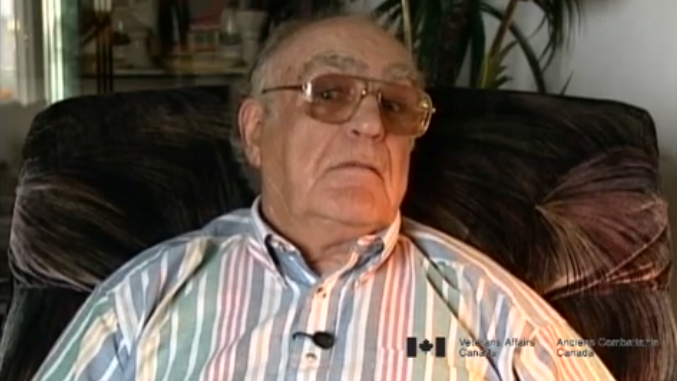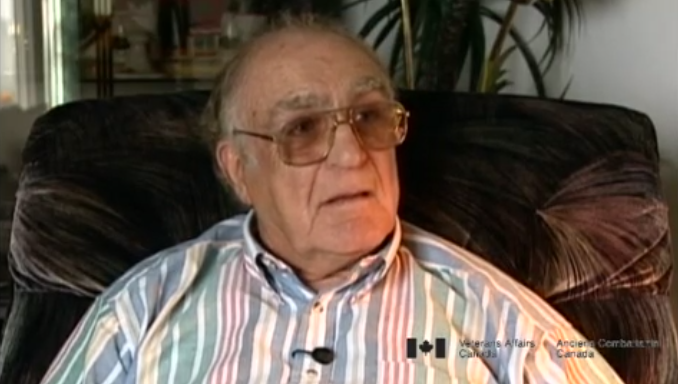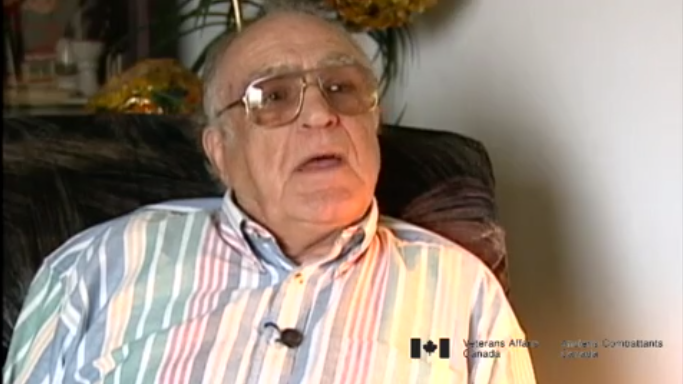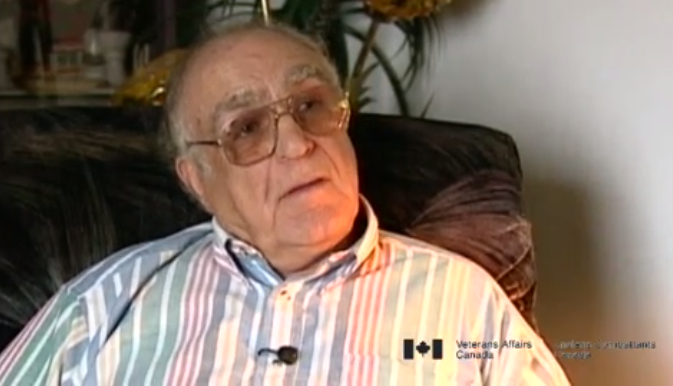Well, at last, I got the diarrhea which they called the
garigari (sp). They said at the mines, “Anybody with garigari,
put up your hand and go back to camp.” So I put up my hand,
and, "Yousko." I moved out and two guards came back.
When they got me halfway back they gave me some hammering.
I’ve had a sore back ever since. I’ve had a very sore back.
They beat me. They knocked me down. I was young,
because I know today if they hit me and knocked me down what
I'd do, I’d lay down, but instead of that, I kept getting up.
At last, I could not get up. Another time I was into the camp,
and I had eaten, I was hungry. We had our ration of rice for the
morning, and then the one to take into the mine. There was only,
it was not even a good half of a ration for one meal, so I eat
some of it, and when the Jap seen that, he decided to give me
beating. This fellow, his name was Youshido. He was a huge
man for a Jap, most of them were smaller than we were.
Of course, he struck me onto the side of the face and when he did
right away, angry, you know, and my sergeant said to me,
by this time in our rooms was one sergeant from Grand-Cascapedia.
I don’t know if, you’ll probably see him, Bobby Barter. He said,
“Bill! Do you want to live?” And you do want to live, you do want
to live because... I had a bad temper, but anyway I stood at
attention. And he had hit me and he had knocked me backwards and
when he would knock me backwards, I have six picks where I can
show you where they’d stick the bayonet in my ass, and I’d walk
ahead and stand at attention, and he would hit me again.
And he knocked me backwards six times, and I would not go down.
Again, I think this was silly. Today I realize that, I should say
but a young fellow... So, I was standing up there and I kind of
grinned at him I guess and he struck me with the butt of the
rifle here, and since then, I have to have my face froze.
They have to go up with a needle up here to the base of the brain
and they freeze me up here because this, and now this part here
is kind of paralysed but if not, I can’t take the pain, whatever
it is. He knocked the -- I had nice teeth -- and he knocked four
teeth out of my mouth, the four front teeth. Anyway, I went
inside and when I came out he blackened my eye. He had given
me some beating. I remember I went inside and Bobby or some
of those said, “Well, we warned you Bill.” There was eight of us
in these little rooms, and I was so angry, you know, and
I was young. I said, “I’ll beat every damn man here.” I was
furious you know. But anyways, I realized after the worst it
wasn’t their fault. If you left your room and went to the toilet
you had to move your tag from your room to your toilet and you
did not have time to move that tag because when you had to go,
you had to go. We all had the diarrhea. There was no such thing
as saying, “I couldn’t move a tag.” You’d run like the dickens
to get there. But if you were gone and they came and the tag was
in the room and you weren’t there, you’d get the hell beat out
of you. They were very cruel up there. Into Japan, that was my
hardest time. I mean, I had both my feet broke there and they
still made me work in the mine. I dropped a rock and a fellow
from Pasbebiac, another guy, I don’t know if he’s going to be
interviewed, Peter Derosbie, we were lifting a rock and he
dropped his end and it come down and it fell across my feet
and broke the bones up here. And they had some kind of a black
stuff they put on it, but they made me go to work. And I was
into the mines, and at last I was passing a white mucus and
you’d, there was no toilets or nothing. You’d just sit any place
you went. But when I was down there passing that mucus,
if you had have come along with a rifle I’d have said,
“Shoot me.” I was suffering, suffering.
But, first thing one day it was all over.



